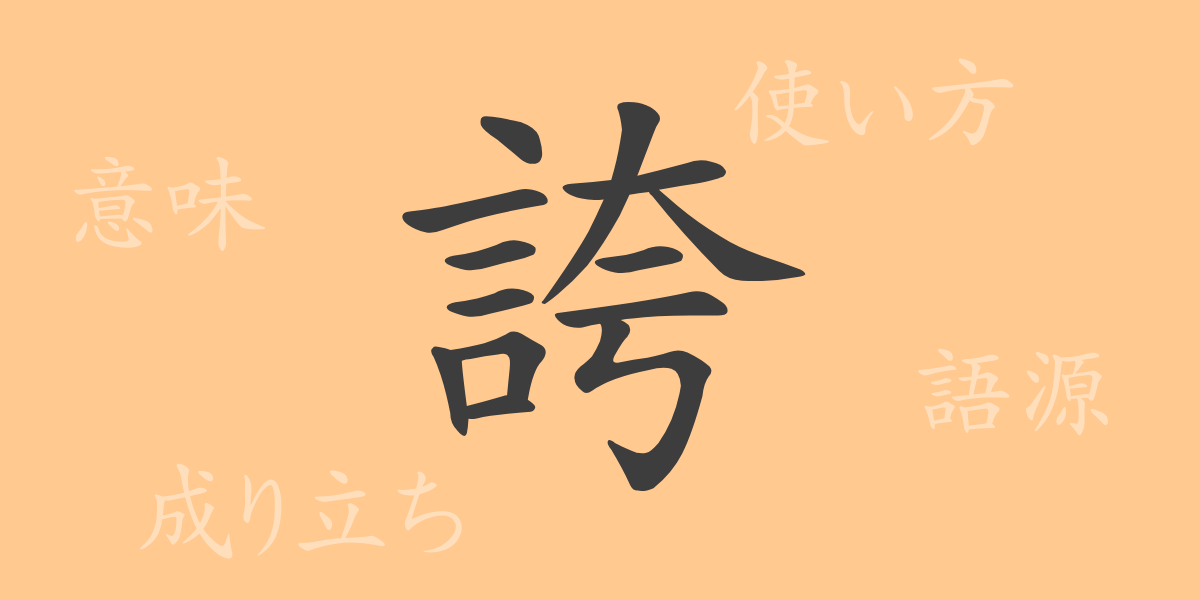Words are a mirror reflecting culture, and each kanji character carries deep meaning and history. The common Japanese kanji “誇” (ほこ.る, こ) is no exception. In this article, we delve into the origins, meanings, uses, readings, and idiomatic expressions related to “誇.” Join us on a journey to rediscover the richness of the Japanese language.
Origin of 誇 (Etymology)
The kanji “誇” (ほこ.る, こ) developed from ancient Chinese pictographs. It consists of the character “言” (words) and “夸,” which means expansion. “夸” symbolizes a large, open mouth, representing exaggerated speech or boasting. Over time, these elements combined to form “誇,” which has been used up to the present day.
Meaning and Usage of 誇
The character “誇” (ほこ.る, こ) means “to take pride in oneself and surpass others.” It is often used when boasting about one’s abilities or achievements, ranging from positive self-confidence to occasional arrogance. For example, “誇り” (ほこり) conveys a positive sense of pride in one’s actions or belonging to a group.
Reading, Stroke Count, and Radical of 誇
The basic information about the kanji “誇” (ほこ.る, こ) is as follows:
- Reading: The On’yomi (音読み) is “コ” (こ), and there is no specific Kun’yomi (訓読み).
- Stroke count: It has a total of 13 strokes.
- Radical: The radical is 言 (ことばへん), which relates to words or speech.
Idioms, Phrases, and Proverbs Using 誇
There are many idioms, phrases, and proverbs that include the character “誇” (ほこ.る, こ), reflecting the richness of Japanese expression. For example:
- “誇大妄想” (こだいもうそう): Refers to tendencies of exaggerating one’s own importance.
- “自画自賛” (じがじさん): Means to praise oneself or to boast.
- “誇り高き” (ほこりたかき): Describes someone who acts with strong self-respect and pride.
Conclusion About 誇
The kanji “誇” (ほこ.る, こ) is used in various contexts, from boasting about achievements and abilities to implying excessive confidence or arrogance. This character embodies the importance of self-respect and self-expression, making it a valuable element in understanding the concept of “pride” in Japanese. For those who use language to express themselves and build relationships, “誇” (ほこ.る, こ) is a highly significant kanji.

























